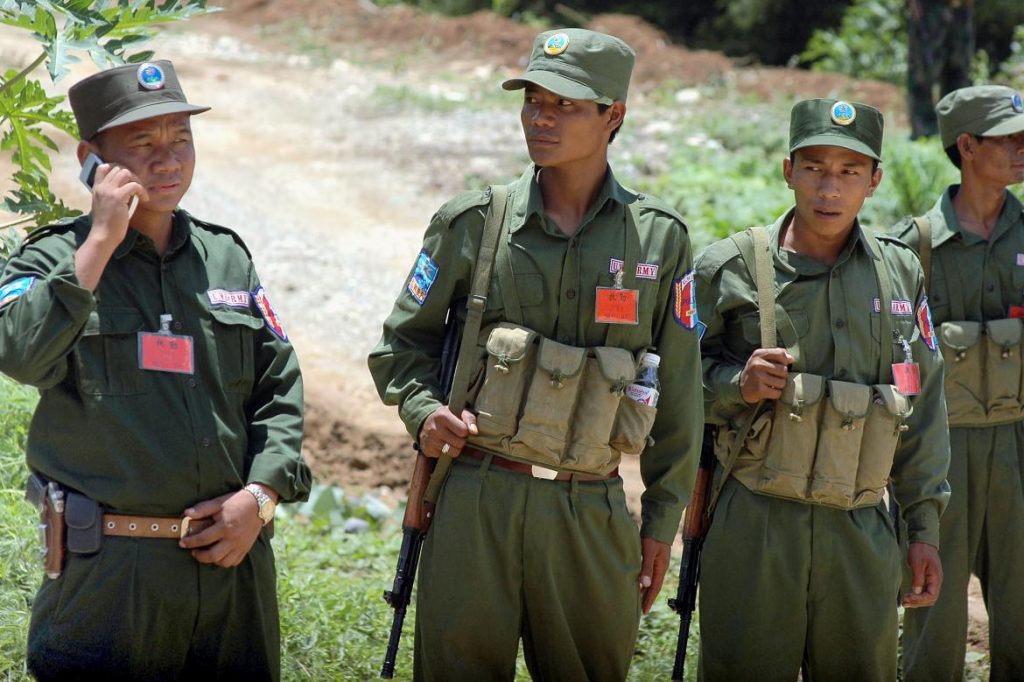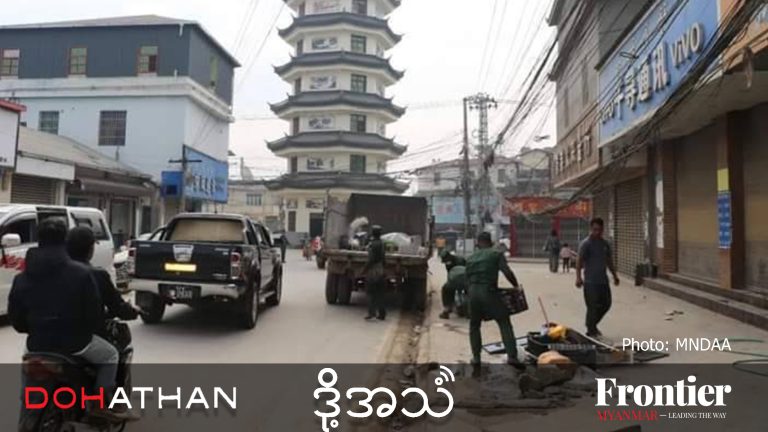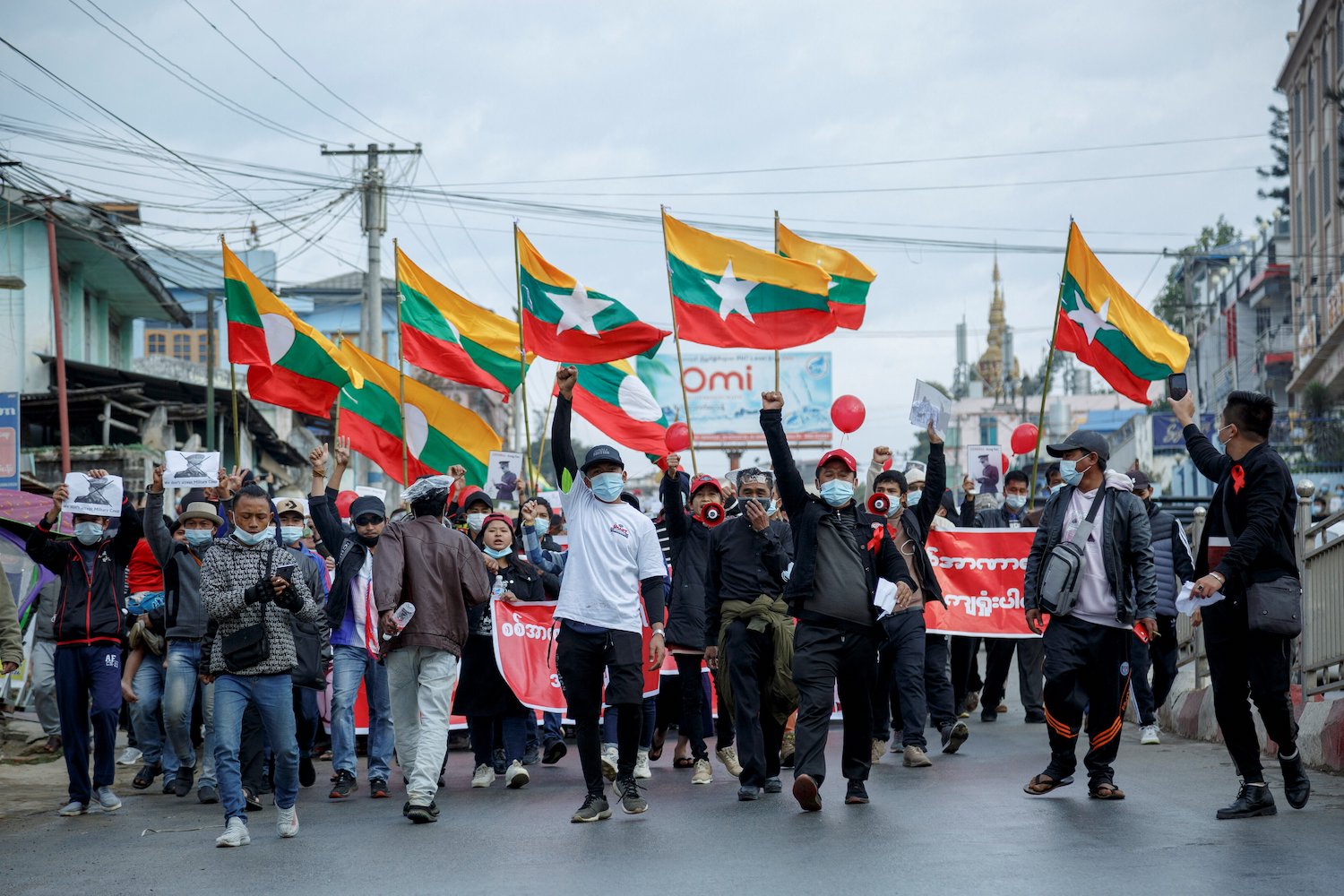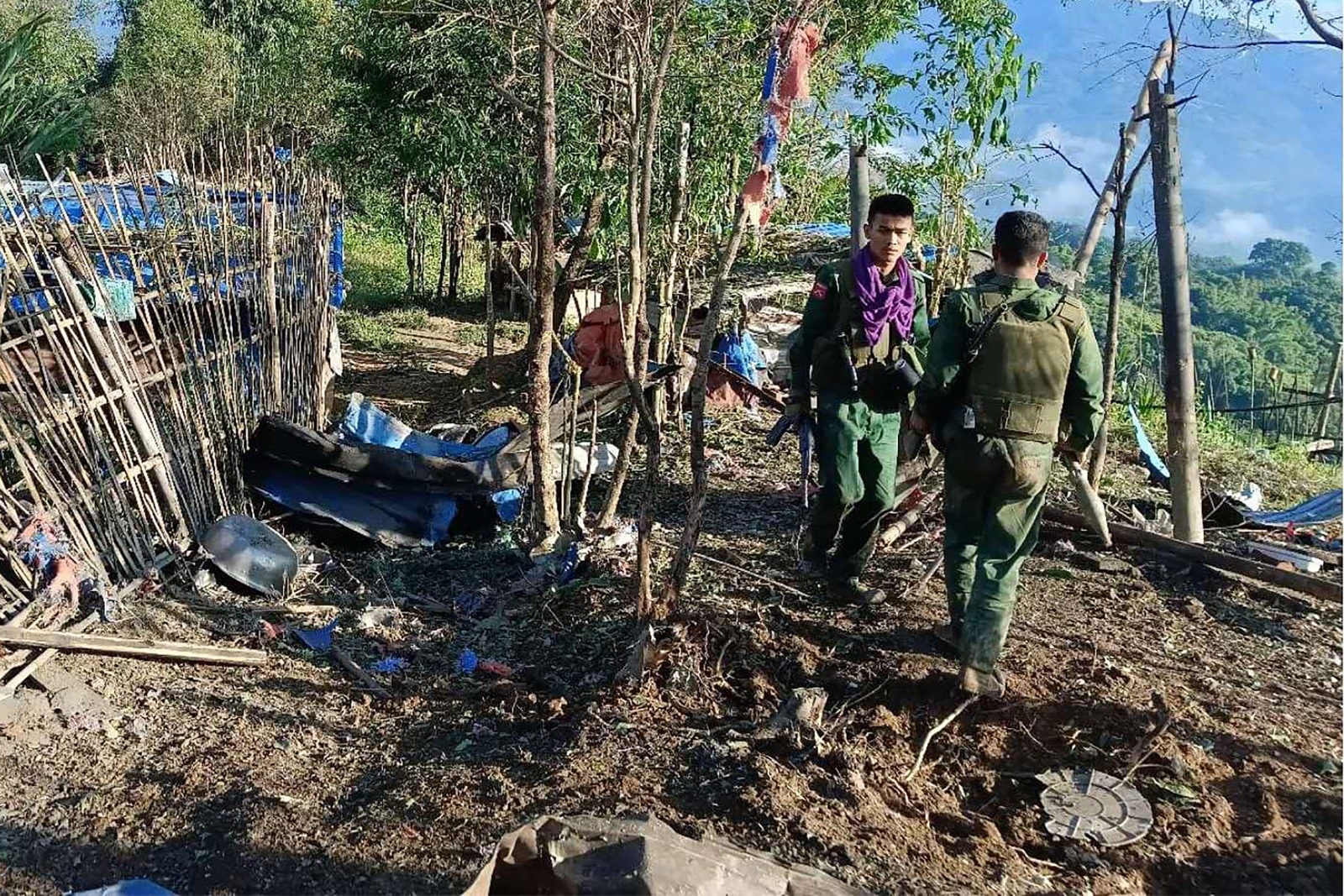YANGON — A Chinese finance company at the centre of a multi-billion dollar fraud investigation is believed to have sent money to territory under the jurisdiction of Myanmar’s largest ethnic armed group, according to Chinese media reports.
State media outlet Xinhua reported on Monday that 21 people had been arrested for their involvement with Ezubo, an online peer-to-peer lender. Authorities alleged the service had defrauded nearly one million investors of more than 50 billion yuan (US$7.6 billion) and illegally possessed a cache of firearms.
Among those arrested were Ding Ning, chairman of Ezubo’s parent company Yucheng Group. According to the Caixan Online news service, Ding was born in eastern China and has since become a Myanmar citizen. Ding had been detained in December after authorities froze the company’s assets, sparking protests by outraged investors at the company’s Beijing office.
Sources familiar with the Chinese police investigation told Caixan that Yucheng Group and its subsidiary had sent $1.5 billion to territory in Myanmar controlled by the United Wa State Army (UWSA) near the Chinese border.
Yucheng’s own website said it had reached an agreement with “authorities in Wa State” to invest $6.1 billion to build a free trade zone in the UWSA headquarters of Panghsang, and attained permission to operate a commercial bank in the town, according to Caixan.
Support more independent journalism like this. Sign up to be a Frontier member.
The UWSA is Myanmar’s largest and most well-equipped non-state armed group, with an estimated force of 20,000 soldiers. It was one of several offshoots of the Chinese-backed Communist Party of Burma, which collapsed in 1989 and split into a number of ethnic armed groups.
Notorious for its involvement in the drug trade, the UWSA claims to have cleared opium crops from all territory under its control. The United Nations Office of Drugs and Crime said in a 2014 assessment that there was “no evidence” of opium cultivation in Wa territory, but numerous researchers allege the group remains involved in the production and trafficking of methamphetamines.
Defence publication Jane’s has reported a number of recent Chinese-made military hardware acquisitions by the UWSA, including 122mm howitzers, anti-tank missiles and shoulder-mounted anti-aircraft missiles.
A bilateral ceasefire has been in effect between the UWSA and successive Burmese governments since 1989, renewed by the nominally civilian government of President U Thein Sein and Wa leaders in 2011. The group declined to participate in the government’s efforts to broker its National Ceasefire Agreement, but last year hosted two summits of other rebel groups considering the accord, before and after it was signed on October 15.
Several ethnic armed groups in Myanmar’s north have long been suspected of receiving support from Chinese authorities on the other side of the border.
In March last year, Major-General Huang Xing was charged with corruption and committed to face a military tribunal after two months of detention. Formerly a senior figure in the Chinese Academy of Military Science, the South China Morning Post reported that the charges were a cover for Maj-Gen Huang’s 2009 leaking of state secrets to ethnic Kokang rebels from the Myanmar National Democratic Alliance Army (MNDAA), a fellow offshoot of the Communist Party of Burma.
At that time, Myanmar’s military had launched an offensive in Laukkai, the MNDAA’s headquarters, ending a 20-year ceasefire and driving the Kokang force across the border into China. The announcement of Maj-Gen Huang’s detention and trial came a month after the MNDAA launched a new offensive in an ultimately failed effort to recapture Laukkai from the Myanmar government.







